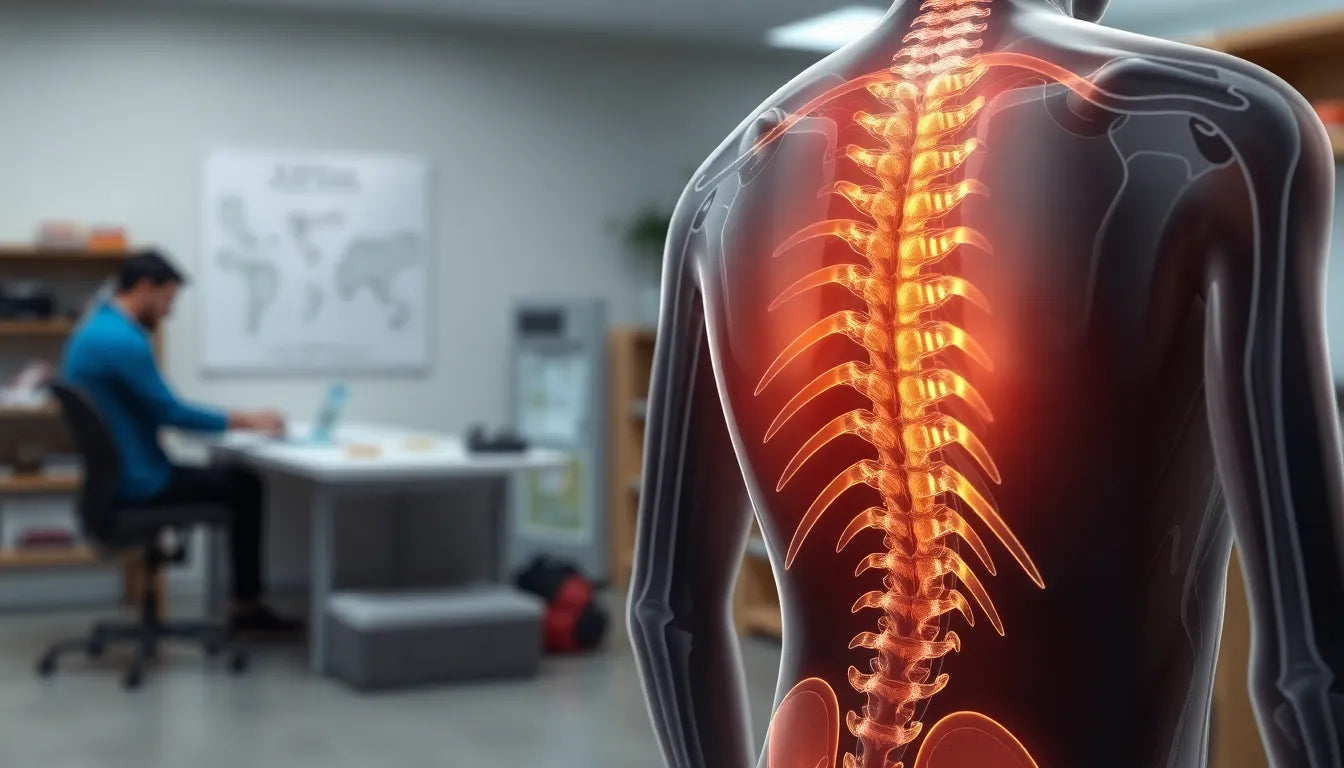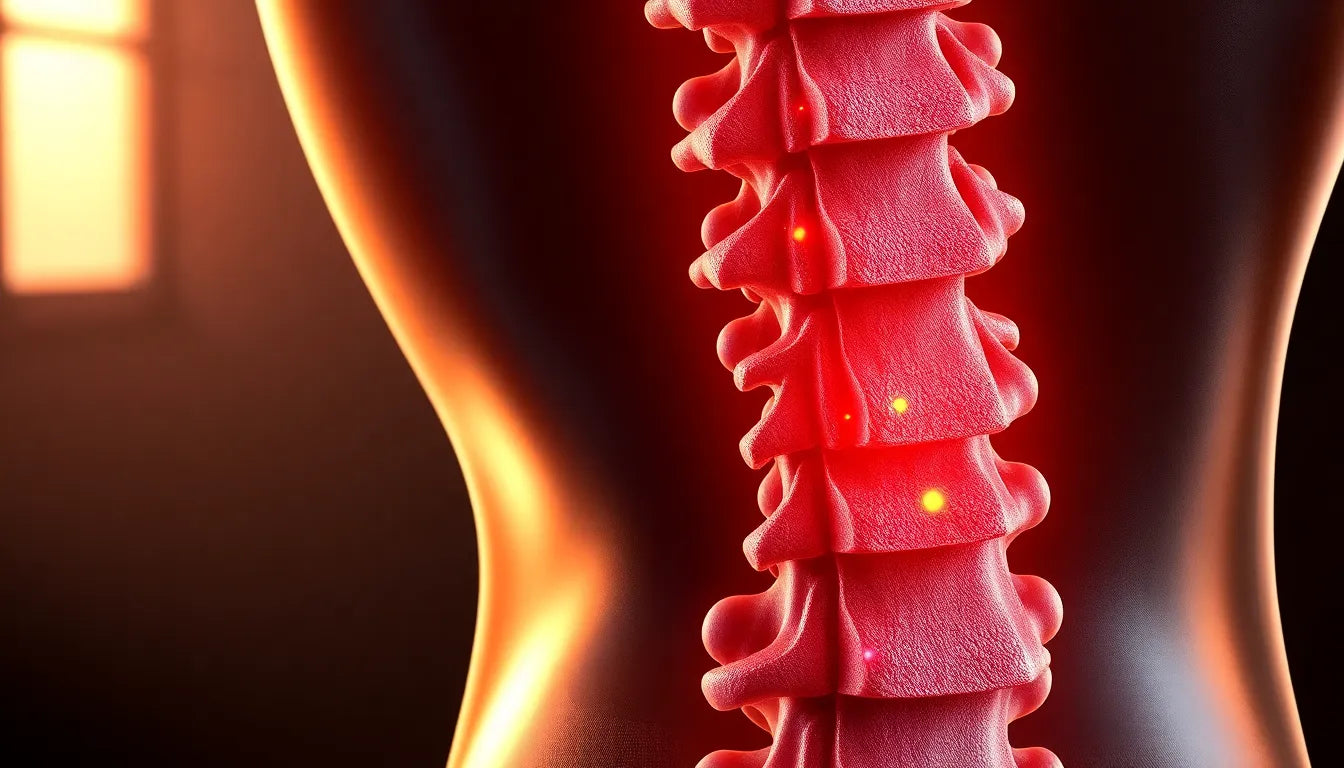Is your back pain more than just a minor inconvenience? This is a question many adults find themselves asking as they navigate the complexities of spine health. Among the myriad of back issues, a herniated disc is one of the most common culprits behind persistent discomfort. This condition often manifests as a result of wear and tear or sudden injury, leading to significant pain and mobility issues for many individuals.
Understanding the herniated disc quiz
The keyword "do I have a herniated disc quiz" is increasingly popular among those seeking clarity about their spine health. This phrase reflects a growing awareness and desire for self-assessment tools that can provide preliminary insights into potential spinal issues. The search intent here is clear: individuals are looking for accessible, informative, and diagnostic resources that can help them determine whether their symptoms align with those of a herniated disc.
Online quizzes tailored to identifying herniated discs serve as a valuable first step in the diagnostic process. These tools are designed to guide users through a series of questions related to their symptoms, offering a preliminary assessment that can inform further medical consultation. As such, they are an essential component of modern health literacy, empowering individuals to take proactive steps in managing their health.
The importance of early diagnosis
Identifying a herniated disc early is crucial for effective treatment and minimizing the risk of further complications. Early diagnosis allows for a broader range of treatment options, from physical therapy and lifestyle adjustments to more advanced medical interventions if necessary. Recognizing the symptoms early can lead to interventions that prevent the condition from worsening, ensuring a better quality of life.
Common symptoms that may prompt someone to take a herniated disc quiz include persistent back pain, numbness, tingling sensations, and muscle weakness. These signs can severely impact daily life, making early detection and management vital. By taking a quiz, individuals can gain a clearer understanding of their symptoms and decide whether it's time to seek professional medical advice.
In summary, the herniated disc quiz is a valuable tool for anyone experiencing back pain and seeking to understand their spine health better. It offers a convenient way to assess symptoms and take the first step towards a healthier back and a more comfortable life.
understanding herniated discs
A herniated disc, often referred to as a slipped or ruptured disc, occurs when the soft inner gel of a spinal disc pushes through a crack in the tougher exterior casing. This condition can lead to nerve irritation, causing pain, numbness, or weakness in an arm or leg. Herniated discs are most common in the lower back but can also occur in the neck. According to medical statistics, approximately 2% of the population will suffer from a herniated disc at some point in their lives, highlighting its prevalence and the importance of awareness.
exploring diagnostic tools and quizzes
In the digital age, many individuals turn to online resources for preliminary health assessments, and quizzes related to herniated discs have gained popularity. Websites like The Advanced Spine Center offer tools such as the "Patient Pain Quiz" and "Patient Symptom Quiz," which are designed to help users identify symptoms that may indicate a herniated disc. Similarly, Modern Spine's "Free Pain Quiz" provides a comprehensive symptom assessment, offering users personalized feedback and educational resources about potential spine issues.
These quizzes typically include questions about the location and intensity of pain, as well as any associated symptoms like numbness or tingling. The goal is to provide users with a better understanding of their condition, enabling them to make informed decisions about seeking professional medical advice. While these tools are not a substitute for a professional diagnosis, they serve as a valuable first step in recognizing potential spinal problems.
interactive content and user engagement
Interactive quizzes not only engage users but also offer immediate insights into their health, which can be crucial for those experiencing worrying symptoms. By participating in these quizzes, individuals can increase their awareness of spine health and identify whether their symptoms align with those of a herniated disc. This interactive approach encourages users to take proactive steps towards managing their health and seeking timely medical intervention if necessary.
The benefits of these quizzes extend beyond immediate feedback. They often include educational resources that explain the results and provide guidance on next steps, such as consulting a healthcare professional or exploring treatment options. This empowers users to take charge of their spine health and make informed decisions about their care.
common symptoms of a herniated disc
| Symptom | Severity Level |
|---|---|
| Localized pain in the back or neck | Mild to severe |
| Radiating pain down the arms or legs | Moderate to severe |
| Numbness or tingling in limbs | Mild to moderate |
| Muscle weakness | Moderate to severe |
This table outlines common symptoms associated with herniated discs, helping readers assess their condition. By understanding the severity of their symptoms, individuals can better determine whether they should seek professional medical evaluation following a quiz.
In conclusion, understanding herniated discs and utilizing online quizzes can significantly aid individuals in assessing their spine health. These tools provide a convenient and informative way to evaluate symptoms, leading to timely and appropriate medical consultations. As awareness of spine health grows, so does the importance of these interactive resources in promoting proactive healthcare management.
Personalized Advice and Next Steps
After taking a herniated disc quiz, it's essential to consult with healthcare professionals for a comprehensive diagnosis. While online quizzes can provide preliminary insights, they are not a substitute for a professional evaluation. A doctor can confirm whether your symptoms are due to a herniated disc and recommend an appropriate treatment plan. Treatment options may include physical therapy, medications, or lifestyle changes tailored to your specific needs and condition severity.
Physical therapy can help strengthen the muscles surrounding your spine, improve flexibility, and reduce pain. Medications, such as anti-inflammatory drugs or muscle relaxants, may be prescribed to manage pain and inflammation. Additionally, lifestyle changes, such as maintaining a healthy weight, practicing good posture, and engaging in regular exercise, can support spine health and prevent further complications.
Addressing Gaps in Existing Content
While many online quizzes provide valuable insights, they often lack detailed explanations of the results or personalized treatment plans. To bridge these gaps, individuals should seek additional resources or follow-up actions. Consulting with a healthcare provider can help clarify quiz results and establish a personalized treatment strategy. It's also beneficial to explore educational materials on spine health to better understand your condition and available treatment options.
For those who suspect they have a herniated disc, it's crucial to keep track of symptoms and their progression. Documenting these details can assist healthcare professionals in diagnosing your condition accurately and developing an effective treatment plan. Moreover, accessing support groups or forums can provide additional insights and shared experiences from others facing similar challenges.
Frequently Asked Questions
What is a herniated disc, and how does it differ from other back issues?
A herniated disc occurs when the soft inner gel of a spinal disc pushes through a crack in the tougher exterior casing, potentially irritating nearby nerves. This condition differs from a bulging disc, where the disc protrudes but does not rupture, and from spinal stenosis, which involves the narrowing of the spinal canal.
How accurate are online quizzes in diagnosing a herniated disc?
Online quizzes can provide a preliminary assessment of symptoms but are not definitive diagnostic tools. They offer a starting point for understanding potential spine issues; however, a professional medical evaluation is necessary for an accurate diagnosis and treatment plan.
What should I do if my quiz results suggest I might have a herniated disc?
If a quiz indicates you may have a herniated disc, schedule an appointment with a healthcare provider. Prepare a list of symptoms, their duration, and any activities that exacerbate or relieve the pain. This information will assist your doctor in making an accurate diagnosis.
Can lifestyle changes help alleviate symptoms of a herniated disc?
Yes, lifestyle changes can significantly impact spine health. Regular exercise, maintaining a healthy weight, and practicing good posture can alleviate symptoms and prevent further complications. Ergonomic aids, such as supportive chairs and mattresses, can also help manage discomfort.
How can I prevent a herniated disc from worsening?
To prevent a herniated disc from worsening, engage in regular low-impact exercises, such as swimming or walking, to strengthen your back and core muscles. Avoid heavy lifting and use proper techniques when lifting objects. Maintaining a healthy weight and practicing good posture are also crucial for spine health.
In summary, while online quizzes are a useful starting point for assessing spine health, consulting with healthcare professionals is essential for accurate diagnosis and treatment. By understanding your condition and taking proactive steps, you can effectively manage symptoms and improve your quality of life.
























